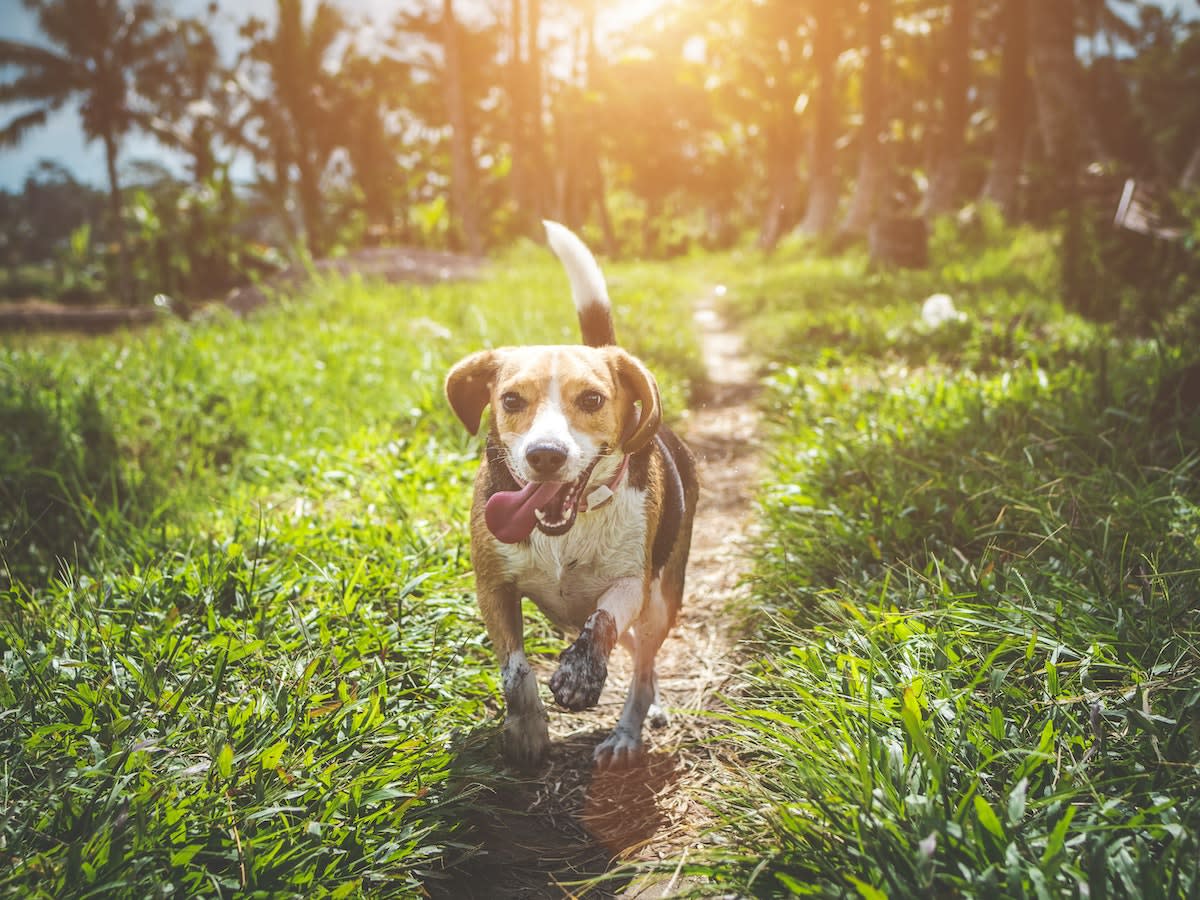Hip dysplasia is a serious issue that can impact your dog’s quality of life. Although it is seen more in large and giant breeds, any size or breed of dog can suffer from the condition. The good news is, if you’ve got a puppy, you can start early and help prevent it with the right nutrition. If your dog already suffers from hip dysplasia, then their diet can also help to manage it.
What is hip dysplasia?
The hip is a ball and socket joint where the rounded top of the thigh bone (the femur) fits into the hip socket where it should be able to move smoothly.
Hip dysplasia occurs when the hips develop abnormally during a pup’s growth and as a result, the thigh bone doesn’t fit properly into the hip socket. So rather than the ball and socket sliding smoothly against each other, they rub and grind, causing the joint to deteriorate over time.
What signs might you see in your pup?
Though some affected dogs show few or no signs of hip dysplasia, for others the symptoms can be severe. If your pup has hip dysplasia you may notice signs including:
Being lame in their back legs
Lacking coordination in their hind quarters (swaying and staggering)
Being reluctant to run and jump
Finding it difficult to lie down or stand up
Walking in an unusual way
If hip dysplasia is suspected, your vet will do a physical examination to diagnose – which may involve taking an X-ray to see what’s happening inside.
What causes hip dysplasia?

Growth that is too rapid is a typical cause of hip dysplasia. This overly quick growth can be caused by excessive calorie intake during the key months of puppyhood, with excess calcium in particular also being a contributing factor.
There’s also a genetic factor. Larger breeds, such as German Shepherds, Labradors and Golden Retrievers, are genetically predisposed to inheriting the condition, while smaller dogs like pugs and French Bulldogs are also more likely to develop the condition. However, diet can influence whether or not hip dysplasia will develop in these dogs- even if they are genetically predisposed to it.
Exercise, too much or too little, can also impact normal hip development.
How can our fresh food help?
Calcium under control
The latest AAFCO guidelines (they’re the nutritional standards for dog foods) recommend that the ratio of calcium to phosphorus should fall within 1:1 – 1.6:1. At Lyka, our in-house vet has designed all of our meals so that the ratio sits at the lower end of this scale (at 1.2 -1.3 calcium to 1 phosphorus). This leaves room for giving your dog additional bones now and then, without exceeding calcium limits which would put your dog at risk of hip dysplasia. You should check with your vet first before giving your dog bones.
Pouch sizes to suit your pooch
Sizes are calculated using an algorithm that takes into account their age, weight and activity levels – so your pupper isn’t fed excessive calories that would make them grow too quickly. Slowing down growth through proper nutrition for your dog doesn’t mean that they won’t reach their full size – it just means that they’ll take a little longer to get there.
Weight watching
If your dog already suffers from hip dysplasia, then weight management is an important part of treatment, as excess weight can put more strain on joints. Lyka can help manage your pup’s weight by customising portion size according to their age, weight, body shape and activity levels.
Good fats
Our meals are high in omega 3 good fats which promote an anti-inflammatory effect – that’s great when it comes to keeping joints healthy, especially for senior dogs.

Lyka: great nutrition from the start
So much happens as your dog grows from puppy to adult. It’s a key phase of development, so feeding your pup high-quality food from a young age can help set them up for a lifetime of good health. Hip dysplasia is a perfect example. Yes, it’s common, but with the right nutrition and avoiding overfeeding, you can help prevent it.
Start and stay healthy with Lyka
You know exactly what you’re getting with Lyka. All of our food is human-grade, and you get exactly what’s on our ingredient list. Lyka’s custom plan of nutritious and delicious, freshly cooked dog food is delivered to your front door, to give your pupper the best start – every day!







